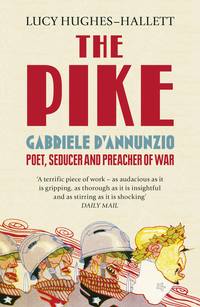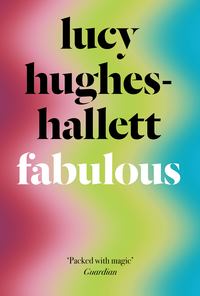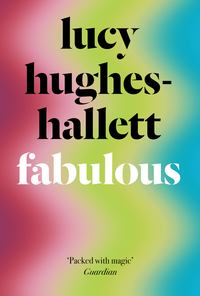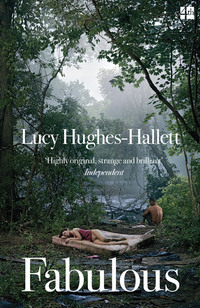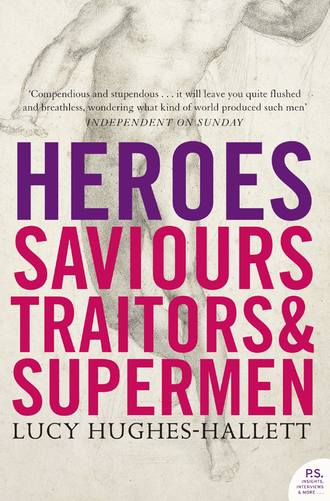
Полная версия
Heroes: Saviours, Traitors and Supermen
The Greeks, by contrast, are far from home, from family, from women, from the sources of their culture. They may have come from a civilization, but they are no longer part of it. For nine years and more they have been encamped on the windy plain with the grey sea behind them. They are cut off from parents and children, isolated from the continuum of generation. All male, all adult, only a few of them old, they form, as any army does, a pathologically unbalanced community. They are raiders, cattle rustlers: they neither grow nor produce anything. Homeless and predatory, they circle the walls of Troy like hungry wolves.
This existence, the life of a vagrant marauder, of a dangerous and perpetually endangered outsider, is what Achilles chose when he picked the path that would lead to his early and glorious death. The Trojans fight because it is their civic duty to do so, to ‘form a wall before our loving parents, wives and sons/To defend Troy’. Achilles fights because he has a lust for ‘the bloody grind of war’. Freud would recognize Hector as a devotee of Eros, the creative deity ‘whose purpose is to combine single human individuals, and after that families, then races, peoples and nations, in one great unity, the unity of mankind’. In battle he is courageous and terrible, but his fighting is a service performed for the sake of the community. It is a function of the relationships by which he defines himself. Achilles the loner, by contrast, is an agent of Thanatos, the force that divides man from man and which drives its acolytes to seek their own and others’ deaths. He is one of the wild ones, one who has rejected the restrictions as well as the rewards of civilian life, whose readiness to risk his own death has accorded him unlimited licence. At large on the plains outside the Trojan walls he is a terrifying apparition, the personification of cruelty and brute force. But he is also, always, even when crazy-eyed and cloaked in others’ blood, dazzlingly beautiful.
Everything about him is exciting, even when (especially when) he is at his most psychotic. He is the first of the lordly delinquents, the charismatic outcasts by whom law-abiding citizens have always been fascinated as well as scared witless. Off the battlefield, arguing in the assembly or in his tent, he exhilarates by his uncompromising integrity and his emotional extremism. In the thick of the fighting he generates a related but darker response. His titanic energy, his lethal skill, his pitilessness, ring out like another, harsher, kind of truth-telling. ‘Come friend,’ he says to a Trojan prince who clasps his knees, unarmed, abjectly begging for mercy. ‘You too must die. Why moan about it so?/ … Look, you see how handsome and powerful I am? … Even for me I tell you/Death and the strong force of fate are waiting./There will come a dawn or sunset or high noon/When a man will take my life in battle too.’ This is the truth. The coolness with which Achilles faces it is connected with the deplorable but intoxicating fury with which he slaughters his fellow men.
Such courage and such rage are not human. ‘The salt grey sunless ocean gave you birth/And the towering blank rocks’, Patroclus tells him, reproaching him for his indifference to his fellows’ fate. Before their final duel Hector proposes a pact binding the winner to return the loser’s corpse to his own people for decent burial. Hector is dressed in the armour he stripped from Patroclus’ dead body, the armour of Achilles. He looks just like Achilles; he is nearly his equal in arms; he is what Achilles might be if he chose to respect the conventions governing human intercourse and rendering its useful continuance possible. Achilles answers by disowning any connection between his wild self and his civilized double. ‘Don’t talk to me of pacts. There are no binding oaths between men and lions.’ He acknowledges no obligation now to anyone or to any power other than his own rage. He is ready to shuffle off his humanity altogether, to become completely bestial. He would like to eat Hector’s flesh. He is unconstrained by any inhibition, any law. He has already consented to his own death, a decision of inhuman bravado which has emancipated him even from what Tacitus called ‘that hindrance to all mighty enterprises, the desire for survival’. Death may be immortality’s opposite, but it confers a similar invulnerability. Death-dealing and bent on dying, Achilles has achieved absolute freedom.
Panic-stricken, the Trojans flee before him, racing for the security of the city. At last only Hector is left outside the walls. The two champions confront each other. Achilles is deadly as the Dog Star, brilliant as the blazing sun. Hector, the noble, all but invincible Hector, loses his nerve and runs. Three times the great runner Achilles chases him round the walls of Troy. Hector is humiliated, pathetic, as feeble as a cringing dove. At last he turns to fight and be killed. With his last breath he foretells Achilles’ own death, but Achilles, as impervious to fear as he is to compassion, taunts him: ‘Die, die! For my own death, I’ll meet it freely.’ As soon as the Trojan is still the rest of the Greeks run up. In a scene of horrible frenzy each one of them stabs Hector’s corpse, until Achilles calls them off. He, the killer, will also be the prime desecrator of Hector’s body. He pierces the tendons in the Trojan prince’s ankles (the tendons later to be known by his own name) and lashes them to the back of his chariot. As he whips his horses to a gallop and races over the plain back to the Greek camp Hector’s head, so handsome once, is dragged bouncing in the dust behind him. From the walls of Troy the watchers, Hector’s parents among them, scream out their horror and their despair.
This agent of mass slaughter and perpetrator of atrocity, this ‘monstrous man’ as Priam justly calls him, Achilles, is still ‘the best of the Achaeans’, the supreme exemplar of heroic virtue. Back in camp, he presides at a splendid funeral games for Patroclus. As instigator of the games and giver of the prizes, he does not compete: were he to do so, he would, of course, be unbeatable. He consoles the losers, arbitrates wherever there is a dispute and sends all home happy with the generosity of his awards. His rage has left him. When Agamemnon wishes to compete as spear-thrower, risking an embarrassing situation if he loses, Achilles intervenes to prevent him by tactful flattery, acknowledging, as he once so passionately refused to do, his commander’s superiority: ‘You are the best by far.’ Even his deference is princely. He is courteous, judicious, munificent, a lord among men.
Disputes about the composition of the Iliad are legion, probably insoluble, and certainly outside the scope of this book. There is a case for considering the funeral games episode to be a later interpolation; but whether or not it always formed part of the Iliad, it certainly did so by the time Homer had come to be ‘the educator of the Greeks’. To the Athenians of the classical era Homer was not only ‘the Poet’, the supreme practitioner of the noblest art; he was also a sage whose works were imagined to contain all wisdom. The Iliad and the Odyssey were recited in their entirety to huge crowds at the great Panathenaic festivals. The citizens of Periclean Athens heard the story of Achilles the frenzied killer who, once the fighting was over, was also a gracious, fine-mannered aristocrat, and saw no inconsistency worth their puzzling over. Patroclus, the man over whom Achilles mourns so frantically, was a fighter almost as savage as his friend, and yet Homer repeatedly describes him as being ‘gentle’. In a warrior culture nobility, even gentleness, coexist comfortably with a capacity for mass-murder.
For twelve days Hector’s body lies unburied. For twelve days Achilles mourns for Patroclus, wandering distraught along the beach, or time and again lashing his enemy’s corpse to his chariot and dragging it three times around his beloved’s tomb. At last the gods intervene. Thetis comes to tell her son that it is Zeus’ will he return the body. That night, helped by Hermes, who has led him unseen past the Greek sentries, old King Priam appears in Achilles’ tent and begs to be allowed to ransom Hector’s body. He offers in exchange magnificent gifts: twelve of the brocaded robes for which the weavers of Troy are celebrated all over the known world, tripods and cauldrons, ten bars of gold, a priceless Thracian cup. Achilles, who has repeatedly spurned Agamemnon’s attempts to conciliate him with rich gifts, accepts.
On the wonderful shield Hephaestus forged for Achilles two cities are depicted, two visions juxtaposed. One is that of a world of war, where even allies quarrel over tactics, where animals and men alike are promiscuously and wastefully killed, where the only way of resolving differences is by the slaughter of opponents. The other is a microcosm of civilized life, typified first by weddings and dancing, emblems of union and cooperative creation, and, most pointedly, by the detailed representation of a dispute resolved, not by violence, but by argument culminating in financial payment. A man has been murdered. The killer and the victim’s kinsman have come into the marketplace so that the case may be publicly debated. The killer offers to pay the blood price. The other refuses to accept it. Both ask for a judge to ‘cut the knot’ of their antagonism, to save them from the horrors of vendetta. The elders of the city, in turn, propose solutions. Money, not blood, will end this quarrel.
Mercenary exchange has frequently been held to be antithetical to the heroic ideal. One who allows himself to be bought off forfeits his claim to glory. Plato censured Homer for showing the great Achilles trading a corpse for gifts. A hero should not be represented as suffering from the ‘disease of mean-spirited avarice’. Sallust, the Roman historian, praised the great men of Rome’s early days for their disdain for gold, their preference for fame: ‘To be seen of all while doing a splendid deed, this they considered riches.’ Virgil, whose hero was the Trojan prince Aeneas, cast Achilles as the archenemy, not only of Troy but of civilization in general, and took every opportunity of discrediting him: in the Aeneid the events of the Iliad are conflated so as to suggest that Achilles was driven by financial greed, that he killed Hector with the ignoble intention of selling him. The distaste for deal-making has proved persistent. At the beginning of the twentieth century members of the European nobility still thought twice before marrying their children to nouveaux riches who had made their fortunes in trade.
The heroes of the Iliad have no such scruples. In the terrifyingly belligerent world Homer describes, the making of a financial deal seems like a blessed release from the otherwise inevitable cycle of killing and counter-killing. As Ajax argues: ‘Any man will accept the blood-price paid/For a brother murdered, a child done to death.’ Once the price has been paid the murderer can be reincorporated into society and the injured man must ‘curb his pride, his smouldering, vengeful spirit’. Such transactions may run counter to the individual’s craving for vengeance but they are necessary to the preservation of the community. Far from being dishonourable, they are manifestations of praiseworthy forbearance. Achilles’ refusal to accept Agamemnon’s gifts along with his apology is a sign that he is still death-bent, an enemy of his own kind, a ‘hard, ruthless man’.
He accepts the exchange Priam proposes because the old King asks it not only for his own sake but also for that of Achilles’ father, who will some day grieve as he does now for the loss of a glorious son. Touched at last, Achilles weeps with him. The rage that had made him emotionally inviolable has passed. He feels pity, for Priam, for his own father, for Patroclus, for himself. He is no longer isolated, no longer either superhuman or subhuman, but part of a family, part of a race. He urges Priam to eat, as Odysseus and Thetis have each on earlier occasions urged him to do: the need for food being something that humbles people, reminds them of their vulnerability and of the imperative need for cooperation. He seems almost ready to countenance the compromises and sacrifices a social existence requires, to accept the limitations physicality sets to a human’s behaviour. Ever since Briseis was taken from him, he has been set on a suicidal course. ‘Only death submits to no man,’ says Agamemnon, infuriated by his obduracy; but Achilles has been as implacable as death, and implacably set on dying. Perhaps, if it were open to him to choose again, he might this time choose survival. But he is given no second chance. Priam returns to Troy with Hector’s body. For twelve days both sides observe a truce while the Trojans celebrate the funeral rites. Shortly after the fighting resumes, Achilles falls.
The Romans had a legend that in earliest times a chasm opened up in the centre of the Forum, threatening to yawn wide enough to swallow the city. The terrified citizens consulted the oracles, which told them that the horrid mouth would close only if Rome’s greatest treasure were cast into it. A splendid young man named Curtius, handsome, brave and nobly born, at once sprang upon his horse and, fully armed as though for battle, put his spurs to its sides and leapt into the abyss. The earth closed over him. The city was saved. Similarly, the death of Achilles, ‘the best of the Achaeans’, opens the way for a Hellenic victory. Once their supreme warrior, their greatest treasure, has been sacrificed, the Greeks take Troy.
When the war is over, when the fabled towers of Troy are shattered, its riches plundered and its people slaughtered or enslaved, when the Greeks at last have sailed away, Poseidon and Apollo throw down the massive rampart that protected the Greek ships. The proper sacrifices were not made before building began. The prodigious wall is an impious defacement of the landscape. The gods call upon the waters of the earth to wash it away. Rivers in flood, torrential rain, the sea’s breakers, all batter against it until there is nothing left of that desperate labour. Poseidon ‘made all smooth along the rip of the Hellespont/And piled the endless beaches deep in sand again’. This war, the most celebrated in human history, is to leave no trace upon the face of the earth.
‘You’d think me hardly sane,’ says Apollo to a fellow god, ‘if I fought with you for the sake of wretched mortals./Like leaves, no sooner flourishing, full of the sun’s fire,/Feeding on earth’s gifts, then they waste away and die.’ Human affairs, viewed sub specie aeternitatis, are of gnat-like insignificance. Human aspirations are absurd, and human lifespan as short as summer’s lease.
For Homer’s heroes there is no sublime afterlife to compensate for this one’s brevity. The souls of the dead survive, but once parted from their bodies their existence is shadowy and mournful. When a warrior dies his soul goes ‘winging down to the House of Death,/ Wailing its fate, leaving his manhood far behind,/His young and supple strength’. Physical beauty, the marvellous vigour and grace of the human body, these are life’s splendours. The pleasures of the intellect, of stratagem and story telling and debate, are prized as well, but they too are a part of corporeal life, dependent for their very existence on ear and tongue and brain. ‘In Death’s strong house,’ says Achilles, ‘there is something left/A ghost, a phantom – true, but not real breath of life.’
Achilles and his fellows treat bodies, alive or dead, with reverence and tenderness – or with a violence that deliberately outrages the body’s acknowledged sanctity. More than half of the fighting described in the Iliad consists of battles over corpses, as a warrior’s enemies try to strip his fallen body of armour (which, poignantly, is far more durable than its wearers) while his comrades struggle to defend him from such posthumous indignity, giving their lives sometimes to save one already dead. It is the flesh that is precious: without it, the spirit is of little consequence. Funerals are awesome, long-drawn-out, and prodigally expensive. Funeral games honour the dead by celebrating the survivors’ bodily strength and swiftness and skill, insisting, even in commemoration of one who has lost it, that the breath of life is of ineffable value. And once gone it is irretrievable. Achilles refuses all Agamemnon’s proffered presents, and he would refuse them even if they were as numberless as the sand; for all the world’s wealth is worth less than his little time in the sun. ‘A man’s life’s breath cannot come back again once it slips through a man’s clenched teeth.’
But just as the discarnate spirit is a sad and paltry thing, so the inanimate flesh is gross and open to the most squalid abuse. The dignity of embodied man is exquisitely precarious. ‘Oh my captains,’ cries Patroclus, grieving over the beleaguered Greeks. ‘How doomed you are … to glut with your shining fat/The wild dogs of battle here in Troy.’ The Homeric warriors, who have lived for over nine years by a battlefield, the horrors of war perpetually before their eyes, are haunted by the knowledge that the strong arms, the tireless shoulders, the springy knees in which they take such pride, are also so much grease to be melted and swallowed up by the impartial earth, so many joints of meat. In one of this harsh poem’s most desolating passages King Priam foresees his own death. ‘The dogs before my doors/Will eat me raw … The very dogs/I bred in my own halls to share my table … mad, rabid at heart they’ll lap their master’s blood.’ Death cancels all relationship, annuls all status. ‘The dogs go at the grey head and the grey beard/And mutilate the genitals.’ Even a king like Priam, his life’s breath gone, is reduced to unlovely matter, defenceless, disgusting. When Zeus sees Achilles’ immortal horses weeping for Patroclus he apologizes to them for having sent them to live with mortals, whose inevitable destiny is so pitiful, so degrading. ‘There is nothing alive more agonized than man.’
There is one way to salvage something from the brutal fact of death. To the Homeric warriors it seemed that the fearless confrontation of violence with more violence might be a way to transform themselves from destructible things into indestructible memories. A man without courage is mere evanescent matter. ‘You can all turn to earth and water – rot away,’ Menelaus tells the Greeks when none among them is brave enough to take up Hector’s challenge to single combat. But a man ready to go out and meet death cheats it. It is on the battlefield, as Homer tells us over and over again, ‘that men win glory’, and for the ancients the winning of glory had a precise and urgent purpose. ‘Ah my friend,’ says Sarpedon to his comrade, ‘if you and I could escape this fray and live forever, never a trace of age, immortal,/I would never fight on the front lines again/Or command you to the field where men win fame./But now as it is, the fates of death await us/ … and not a man alive/Can flee them or escape – so in we go for the attack!/Give our enemy glory or win it for ourselves.’ Only glory could palliate the grim inexorability of death. The man who attained it distinguished himself in life from the mass of his fellows, and when he died he escaped oblivion.
Achilles’ surpassing beauty is precious not because of any erotic advantage it may give him but because, along with his strength and prowess, it renders him outstanding. His celebrity is profoundly important to him, as it would be to any of his peers. It is not frivolous vanity that makes him prize it so. A man who is praised and honoured while he is alive may be remembered even after his body is reduced to ashes and his spirit has gone down into the dark. To be forgotten is to die utterly. To Agamemnon, facing defeat as the Trojans close on the Greek ships, the most terrible aspect of the fate awaiting him and his army is that, once they have been massacred so far from home, their memory will be ‘blotted out’. The only moment in the Iliad when Achilles shows fear is when the River Xanthus comes close to overpowering him, to sweeping him away ignominiously ‘like some boy, some pig-boy’ and threatens to bury him in slime and silt so deep that his bones will never be found, and no fine burial mound will ensure his lasting fame.
‘Remember,’ says the mysterious wise woman Diotima to Socrates in Plato’s Symposium, ‘that the love of fame and the desire to win a glory that shall never die have the strangest effects on people. For this even more than for their children they are ready to run risks, spend their substance, endure every kind of hardship and sacrifice their lives.’ Achilles, she goes on, would surely not have given his life had he not believed that his ‘courage would live for ever in men’s memory’. Pindar, writing a generation before Plato, rejoiced that in the hero’s lifetime ‘the voice of poets made known … the new excellence of Achilles’, that in his death ‘song did not abandon him’, that the Muses themselves chanted dirges around his pyre, and that the gods ordained that he, or rather his memory, should be tended and sustained by them for ever more.
St Augustine understood the ancients’ craving for fame, and what seemed to him their over-valuation of the ‘windy praise of men’. Looking back from the standpoint of one to whom Christ’s death had offered the hope of heaven, he wrote forgivingly of the folly with which they tried to extend and to give significance to their pathetically finite lives. ‘Since there was no eternal life for them what else were they to love apart from glory, whereby they chose to find even after death a sort of life on the lips of those who sang their praise?’
That windy afterlife could be attained by killing. Hector, challenging Ajax to single combat, promises to return his victim’s body, should he kill him, so that the Greeks can build a burial mound: ‘And some day one will say, one of the men to come,/Steering his oar-swept ship across the wine-dark sea,/“There’s the mound of a man who died in the old days,/One of the brave whom glorious Hector killed”. So they will say, some day, and my fame will never die.’ Better still, it could be achieved by being killed in battle. In the Odyssey Achilles’ shade and that of Agamemnon meet in the Underworld. Agamemnon who, alive, insisted so vehemently on his supremacy, now defers to the other, paying tribute to Achilles’ glorious end. Rank confers honour, but only a soldier’s death brings glory. Murdered on his return to Mycenae by his wife Clytemnestra, Agamemnon, as the victim of a squalid and abhorrent crime, is degraded in perpetuity. He wishes, and Achilles agrees that he is right to do so, that he had been killed at Troy. Enviously, he describes Achilles’ funeral, the eighteen days of unbroken mourning and sombre ceremony, the tears, the dirges, the burnt offerings, the games, the long cortège of men in battle armour, the resounding roar that went up when the pyre was lit, the great tomb built over the hero’s bones. ‘Even in death your name will never die … /Great glory is yours, Achilles,/For all time, in the eyes of all mankind.’
The gods held to their side of the bargain Achilles made. His fame has yet to die. For the Greeks of the classical era, for the Romans after them, and – after a lapse of nearly a thousand years during which the Greek language was all but forgotten in the West – for every educated European gentleman (and a few ladies) from the Renaissance until the beginning of the twentieth century, the two Homeric epics were the acknowledged foundations of Western culture, and ‘the best of the Achaeans’ the prototypical hero. Even now, as this book goes to press, a new film version of the Troy story is being advertised, one in which Brad Pitt, described as Hollywood’s handsomest actor, plays Achilles. It is a role many illustrious men have coveted.
In 334 BC Alexander, the 22-year-old King of Macedonia, already remarkable for his daring and his vast ambition, chose to make his first landfall in Asia on the beach traditionally held to be the one where, some nine centuries earlier, the Greeks’ black ships were drawn up throughout the ten harrowing years that they laid siege to Troy. Alexander slept every night with a copy of the Iliad, which he called his ‘journey-book of excellence in war’, beneath his pillow along with a dagger. He claimed that his mother was descended from Achilles. He encouraged his courtiers to address him by Achilles’ name. As his fleet neared the shore he dressed himself in full armour and took the helm of the royal trireme. Before embarking on his world-subduing campaign, Alexander had come to pay tribute to his model.


